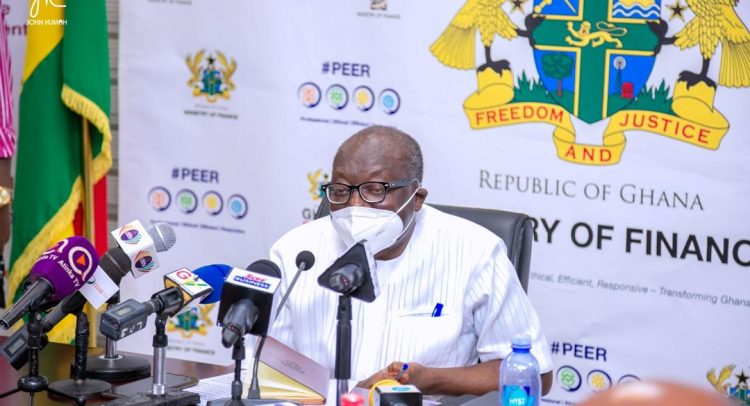Ken Ofori-Atta
Ghana has been taken off the Financial Action Task Force (FATF) “grey list”.
Finance Minister, Ken Ofori-Atta, announced this to the media in Accra on Wednesday, June 30, 2021.
According to him, ” The FATF took this decision at their plenary meeting held on June 23, 2021, when it was unanimously agreed that Ghana had satisfactorily completed her Action Plan after the International Cooperation Review Group (ICRG) had submitted their report.”
He said by this decision, FATF and, for that matter, the international community has renewed its confidence in Ghana’s Anti-Money Laundering and Countering the Financing of Terrorism (AML/CFT) regime.
” This is great relief for the country, considering the economic consequences suffered by the country while on the list. This will boost confidence in the integrity of our financial environment and also boost foreign direct investment.
To give you a background of the “grey list”, in 2016, Ghana was subjected to a Second Round of Mutual Evaluation by the Inter-Governmental Action Group against Money Laundering and Terrorist Financing in West Africa (GIABA). Ghana was the first among her peers in the West African sub-region to have gone through the Second Round of Mutual Evaluation.
Even though this round of mutual evaluation showed some progress over an earlier one in 2009, there were still significant gaps that needed to be addressed. Ghana was therefore placed under observation by the International Cooperation Review Group (ICRG), one of the technical groups of the FATF charged with the responsibility of identifying, reviewing, and monitoring jurisdictions with AML/CFT deficiencies that present a risk to the international financial system.”
” The ICRG and Ghana developed a 2-year Action Plan spanning 2019 – 2021 with timelines, to address the deficiencies.
Following the ICRG plan and FATF acknowledgment, the European Union also issued a press release on 18th October, 2020 adding Ghana to their list of high-risk third countries with strategic deficiencies in their Anti-Money Laundering and Countering the Financing of Terrorism (AML/CFT) regime as a result of Ghana being on the FATF list.”
“Over the last three years, an Inter-Ministerial Committee led by the Ministry of Finance has been hard at work coordinating key reforms to cure strategic AML/CFT deficiencies. In addition, I have been chairing and guiding a multi-stakeholder National Task Force on AML/CFT.”
He added that “The Inter-Ministerial Committee has worked closely with the President and Cabinet Office to fundamentally transform AML/CFT governance of Ghana by approving the National AML/CFT Policy and Strategy, enacting critical legislation, and instituted key measures.
Ladies and Gentlemen, I wish to inform you that FATF has expressed satisfaction with our work so far, and as indicated earlier, a unanimous decision was taken at their plenary meeting of June 23, 2021, to take Ghana off the
“grey list”.
He added that “as you all know, Ghana is the pillar of stability, good governance, and democracy in a fragile region. Ghana has also positioned itself as the gateway and spearhead for African economic and financial integration.”
“The GhanaCARES) Obatanpa Programme, is Ghana’s post-pandemic recovery and transformation plan. It has been developed to mitigate the impact of the pandemic on the lives & livelihoods of Ghanaians & ensure that we quickly emerge from the pandemic with a stronger and more resilient economy.”
“We now host the headquarters of the AfCFTA. Over the past few years, we have engaged in significant reforms to make Ghana the most attractive investment destination in Africa. We believe that we can achieve this. More importantly, a Ghana Beyond Aid impetus highlights our eagerness for partnerships and linkages to enhance trade and economic cooperation with our friends for mutual benefit. Ghana exiting the ICRG process is also an important signal for the rest of the African sub-region.”
By Melvin Tarlue


